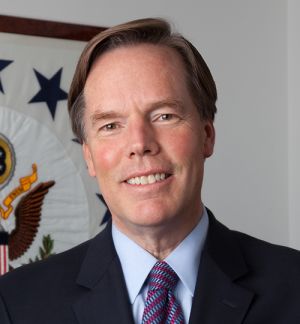After the Boston bombing attacks and frenetic manhunt late last week, the city and the country are debating lessons we should heed to prevent other such tragedies in the future. In some ways, the week after has illuminated a tale of two cities -- unity and resolve in Boston and a more fractious and predictably rancorous red/blue debate in Washington and the country at large.
Bostonians are experiencing the aftermath of the city's first modern terrorist attack -- a mixture of loss and pain combined with unity and pride in how well public officials managed the crisis. When Dzhokhar Tsarnaev was captured Friday night under the glare of the international spotlight, residents of Watertown cheered the police -- the mark of a secure, civil, and tight community. Indeed, One Fund Boston, created within days of the bombing, has now raised over $20 million to help the more than 180 victims.
But as we turn to face the inevitable questions of why and how the perpetrators carried out the attack and what it means for the country at large, there is far less unity and certainty. Twitter and the blogosphere have been lit up by controversies big and small, from the legal issues surrounding the upcoming trial of the younger Tsarnaev brother to whether the FBI was deficient in not pursuing Russia's concern about growing Islamic radicalization of the older brother in 2011 to 2012.
What are some of the major issues in play? First, a number of critics say Boston authorities overreacted by allowing the suspects to terrorize an entire city that was then locked down for the better part of a day. What kind of precedent does it set? Might it encourage more copycat terrorist acts in the future? But consider the unique nature of what happened in Boston. Imagine the criticism if police had not shut down public transport and ordered the lockdown and a deadly terrorist on the run had murdered even more people? The lockdown gave police precious time and space to investigate, and it worked. Citizens paid a small price for a much larger gain in public security.
Second, the columnist Marc Thiessen raised a far more worrisome issue in Monday's Washington Post. He cited the low-cost, low-tech improvised explosive devices used in the bombings as easy to imitate and a more effective strategy for Al Qaeda and other groups to employ against civilian targets in the future. Our troops in both Iraq and Afghanistan have seen all too well the dangers of this insidious technology. Rather than focus on the Boston lockdown, critics might spend more time on Thiessen's fear of "impossible to defend" attacks on sports stadiums, concerts, and malls.
Third, Boston will also force us to think clearly about our ongoing counter-terrorism cooperation with Russia. Given the Tsernaev family's roots in Chechnya and home in Dagestan, the Russians will press Washington for much closer assistance, as the Kremlin indicated over the weekend. We will certainly need to work with Russia to identify terrorists and prevent future attacks. But Russia's crude and savage brutalization of the Chechen people during the two wars of the 1990s and its corrupt administration of the region since are not policies with which we should be closely aligned.
As we consider Boston's lessons, the wisest strategy will be to stay true to our greatest strength -- our democratic principles. The early signs are encouraging. President Obama ignored those who demanded he indict the younger Tsarnaev as an enemy combatant and chose our civil court system instead. And while some Republicans have threatened to shut down debate on immigration reform, one hopes cooler heads and the party's survival instincts will prevail.
After 9/11, Americans rang the village bell, fought back against terrorism, and made the country stronger and safer. We need to do the same now in reacting to a very different threat in the Boston attacks. But, this time, we should be careful to keep our response in proportion by not framing it as a stark choice between security and democratic values. We'll need to mount new defenses against new terror tactics but should be careful to avoid the extreme measures undertaken last time -- Guantanamo, Abu Ghraib, torture -- that we would take back if we could do it over again. We have just been given that chance.
Burns, Nicholas. “Challenges, both here and abroad.” The Boston Globe, April 25, 2013


